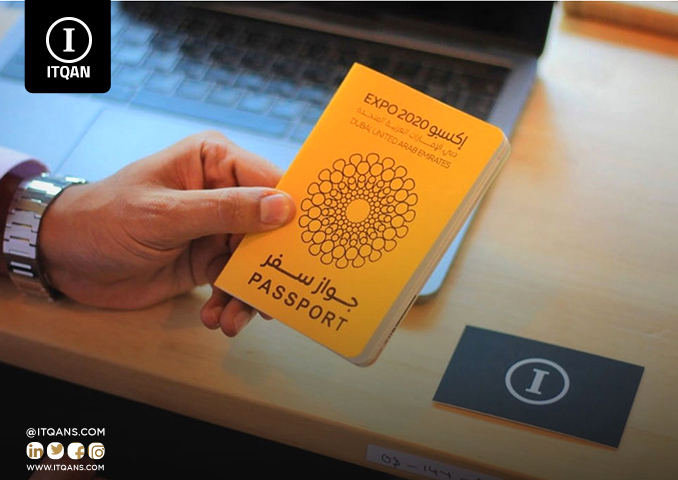What are the costs of setting up a company in Dubai? Because Dubai is considered one of the leading destinations for investment and business in the Middle East and the world, thanks to its dynamic economic environment and advanced infrastructure. With the increasing demand for establishing companies in this global city, it becomes necessary to understand the details of the costs associated with setting up a company in Dubai. Costs vary depending on the type of business activity, location, type of free zone or other areas, as well as the licensing and license requirements necessary. In this article, we will review the various factors that affect the costs of setting up a company in Dubai , and how new companies can balance the costs and opportunities provided by this thriving investment environment.

جدول المحتوى
ToggleCost of setting up a company in Dubai
The costs of setting up a company in Dubai depend on several main factors, including:
- Type of company: Costs vary depending on the type of company you intend to establish, such as limited liability companies, sole proprietorships, or holding companies. Each type has its own requirements and costs.
- Type of License: Licensing costs vary depending on the type of business activity, whether commercial, industrial, or consulting. Some activities require special licenses and additional costs.
- Location: Where a company is located has a significant impact on costs. Companies that choose to operate in free zones may benefit from lower costs compared to non-free zones, but may be restricted in the type of activities that can be undertaken.
- Office Rent: Office rental costs depend on its location and size. Costs can be lower in industrial or free zones than in central business districts.
- Registration and Licensing Fees: These include fees related to registering the company, obtaining the required licenses, and renewing them. They may also include the costs of depositing the required capital.
- Taxes and Government Fees: Costs depend on the applicable tax system and any other government fees that may be imposed on businesses.
- Legal and administrative consulting services: Companies may need consulting services to help them complete legal and administrative procedures, which adds to the overall costs.
- Insurance and Guarantees: Some businesses require special insurance or financial guarantees as part of the licensing terms.
- Equipment and supplies: The cost of purchasing or renting equipment and tools needed for the job.
In short, the costs of setting up a company in Dubai vary based on several factors, so it is essential to conduct careful research and good planning to determine the expected costs and ensure that you can cover them.
Steps to establish a company in Dubai
First, you must determine the type of company and activity in terms of determining the type of company you wish to establish (such as a limited liability company, a sole proprietorship, or a joint stock company) and its commercial activity. This will affect the type of license required and the place of establishment of the company. Here are the remaining steps to establish a company in Dubai :
- Choosing a location: Choose the right location to establish the company, whether in a free zone or in a non-free zone. Each option has different requirements and costs.
- Choose a company name: Choose a company name and make sure it meets local legal standards. You may need to apply for name approval.
- Prepare the required documents: Prepare the necessary documents such as passports, residency documents, and articles of association. You may also need to determine the initial capital.
- Apply for a license: Apply for the appropriate commercial or industrial license from the relevant authorities such as the Department of Economic Development (DED) or the authority supervising the free zone.
- Signing Articles of Association: Sign articles of association with partners and shareholders. You may need to prepare an articles of association or partnership agreement.
- Company Registration: Register the company with the relevant government agencies, such as the Department of Economic Development, the Free Zones Authority, or the Companies Registry.
- Open a bank account: Open a bank account in the company’s name to facilitate financial transactions and deposit the required capital.
- Obtaining the necessary insurances: You may need to obtain certain insurances depending on the type of business activity.
- Furnish the office and hire employees: Furnish the office and hire the necessary employees to start the business.
- Tax Registration: If the company will be subject to taxes, register with the relevant tax authority.
- Obtaining additional permits and licenses: Depending on the type of activity, you may need additional permits or licenses from other authorities.
- Starting Operations: After completing all the procedures, you can start your business operations as per the plan. Following these steps carefully will ensure that you start your business in Dubai legally and in an organized manner.
Advantages of establishing a company in Dubai
Establishing a company in Dubai offers many advantages that make it an attractive destination for investors and businessmen. Here are some of the key features:
- Encouraging investment environment: Dubai offers a safe and stable investment environment, with advanced infrastructure and integrated services that support business growth.
- Tax Exemptions: Dubai offers several free zones that enjoy complete tax exemptions on profits and distributions. There is also no personal income tax.
- Ease of procedures: Dubai has fast and efficient procedures for establishing companies, which contributes to accelerating the process of establishing and starting work.
- Access to global markets: Dubai is a global hub for trade and business, providing access to vast international markets in the Middle East, North Africa, Europe and Asia.
- Multiple free zone options: Dubai offers many specialized free zones, allowing companies to choose between areas that offer various benefits that suit the type of business activity.
- Intellectual Property Protection: Dubai offers a robust intellectual property rights protection system, which enhances the security of innovations and brands.
- Diversity of Workforce: Dubai attracts a diverse range of talent and skills from all over the world, providing companies with a wide range of options to hire the best talent.
- Ease of financial transactions: Dubai offers an advanced banking system with various options for money transfers, making it easy to manage international financial transactions.
- Strategic Location: Dubai is located in a prime geographical location that links the markets of the East and the West, making it an ideal starting point for expansion into global markets.
- Incentives for new businesses: Dubai offers various incentives for new investors, such as fee waivers, logistical support, and project promotion.
- Political and Economic Stability: Dubai offers political and economic stability that enhances confidence in the business environment and encourages long-term investment. With these advantages, Dubai is an ideal choice for companies looking for growth and expansion opportunities in a thriving global market.

Conditions for establishing a company in Dubai
Establishing a company in Dubai requires compliance with a set of basic conditions and requirements. The following are the main conditions:
- Determine the type of company: You must determine the type of company you wish to establish (such as a limited liability company, a joint stock company, or a sole proprietorship) based on the type of activity and the legal structure required.
- Choosing a business activity: Determine the type of business activity the company will be conducting, as this will affect the type of license required.
- Choosing a trade name: The company must choose a trade name that complies with local laws, and the name must not be similar to the names of other registered companies.
- Submitting the required documents: Passports of shareholders and directors. Personal photos. Company incorporation contract.
- Location Selection: Determine a location for the company’s office. Options may be between free zones or non-free zones, and the location must be compatible with the business activity.
- Capital Preparation: Determine and provide the capital required to establish the company. Capital requirements vary depending on the type of activity and the type of company.
- Obtaining a license: Apply for a business license from the Department of Economic Development (DED) or the authority supervising the free zone of your choice. This requires submitting an application and providing the necessary documents.
- Signing contracts and agreements: Signing articles of association and agreements with shareholders and partners.
- Registration with government agencies: Register the company with the relevant government agencies such as the Department of Economic Development, the Free Zones Authority, or the Commercial Register.
- Open a bank account: Open a bank account in the company’s name to facilitate financial transactions.
- Obtaining additional licenses: Depending on the type of activity, you may need to obtain additional licenses or permits from other authorities.
- Company insurance: Obtaining the necessary insurances according to the type of activity, such as workers’ insurance or property insurance.
- Recruiting staff: If needed, hire staff and meet local employment requirements, including work visas and health insurance.
Once all these requirements are met, you can start your company operations according to the plan you have set. Make sure to follow local laws and any updates that may affect the incorporation process.
In conclusion, understanding the costs of setting up a business in Dubai is vital for any investor or entrepreneur looking to enter the city’s thriving business market. Dubai offers a unique investment environment thanks to its advanced infrastructure, economic incentives, and political and economic stability. However, the various costs associated with company licensing, office rental, insurance, and consulting services must be taken into account to ensure the success of the venture. Through careful planning and a comprehensive assessment of all interrelated factors, new businesses can maximize the opportunities available in Dubai and minimize financial risks. Starting out with an awareness of costs and potential investors, and complying with legal procedures, contributes to achieving business goals efficiently and effectively. Dubai is a strategic destination that seeks to attract investors from all over the world, making their investment a successful and profitable move.
Frequently asked questions about the costs of setting up a company in Dubai
Do the costs of setting up a company differ depending on its type?
Yes, costs vary depending on the type of company (such as LLC, sole proprietorship, or corporation) and business activity.
What are the licensing costs in Dubai?
Licensing costs depend on the type of business and location. They can include commercial or industrial licensing fees as well as any additional licenses that may be required.
Is there a difference in costs between free zones and non-free zones?
Yes, costs in free zones are usually lower compared to non-free zones, due to the tax incentives and exemptions offered in free zones.
What are the office rental fees in Dubai?
Office rental fees depend on the location and size of the office. Costs can be lower in industrial or free zones than in central business areas.
















